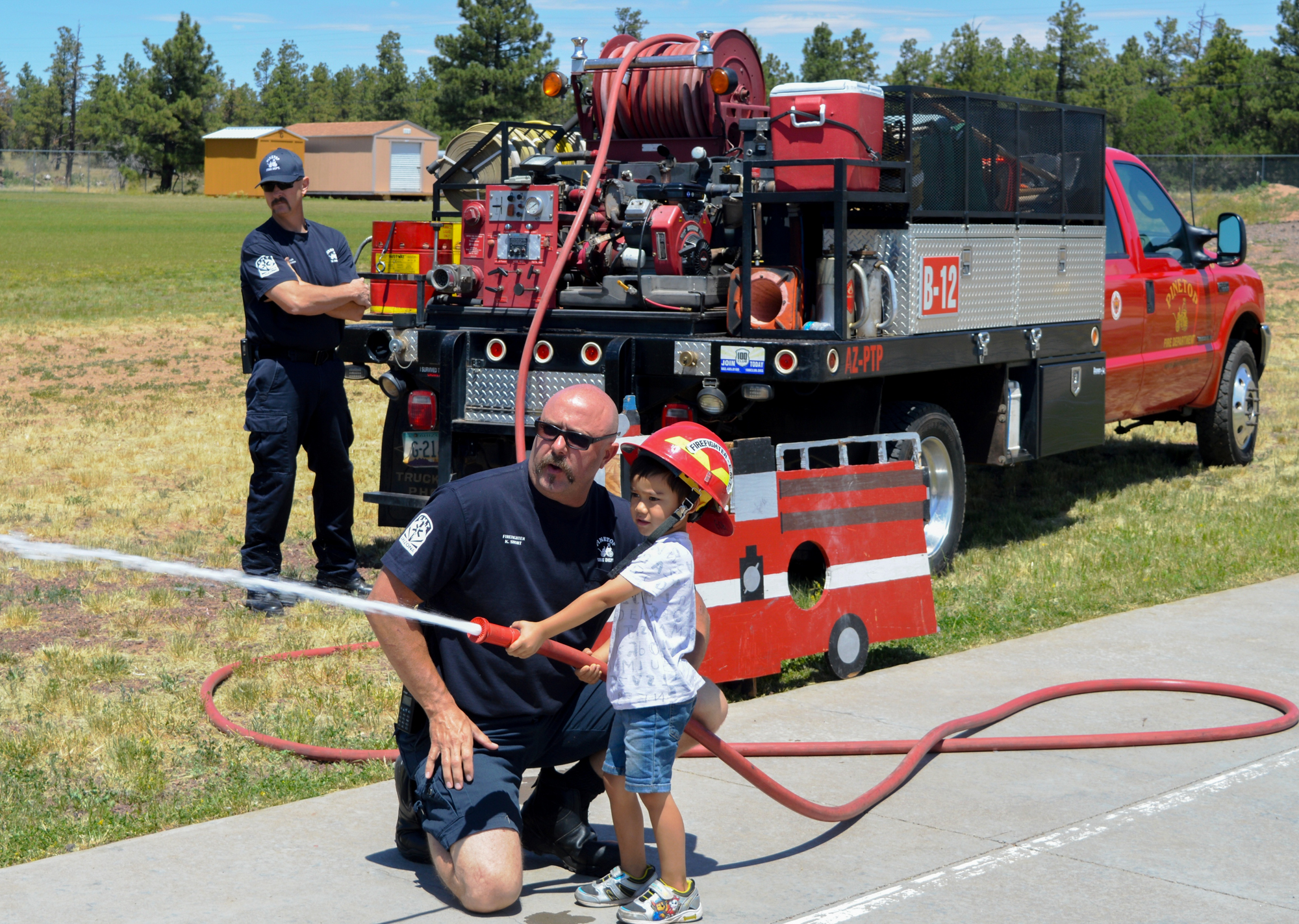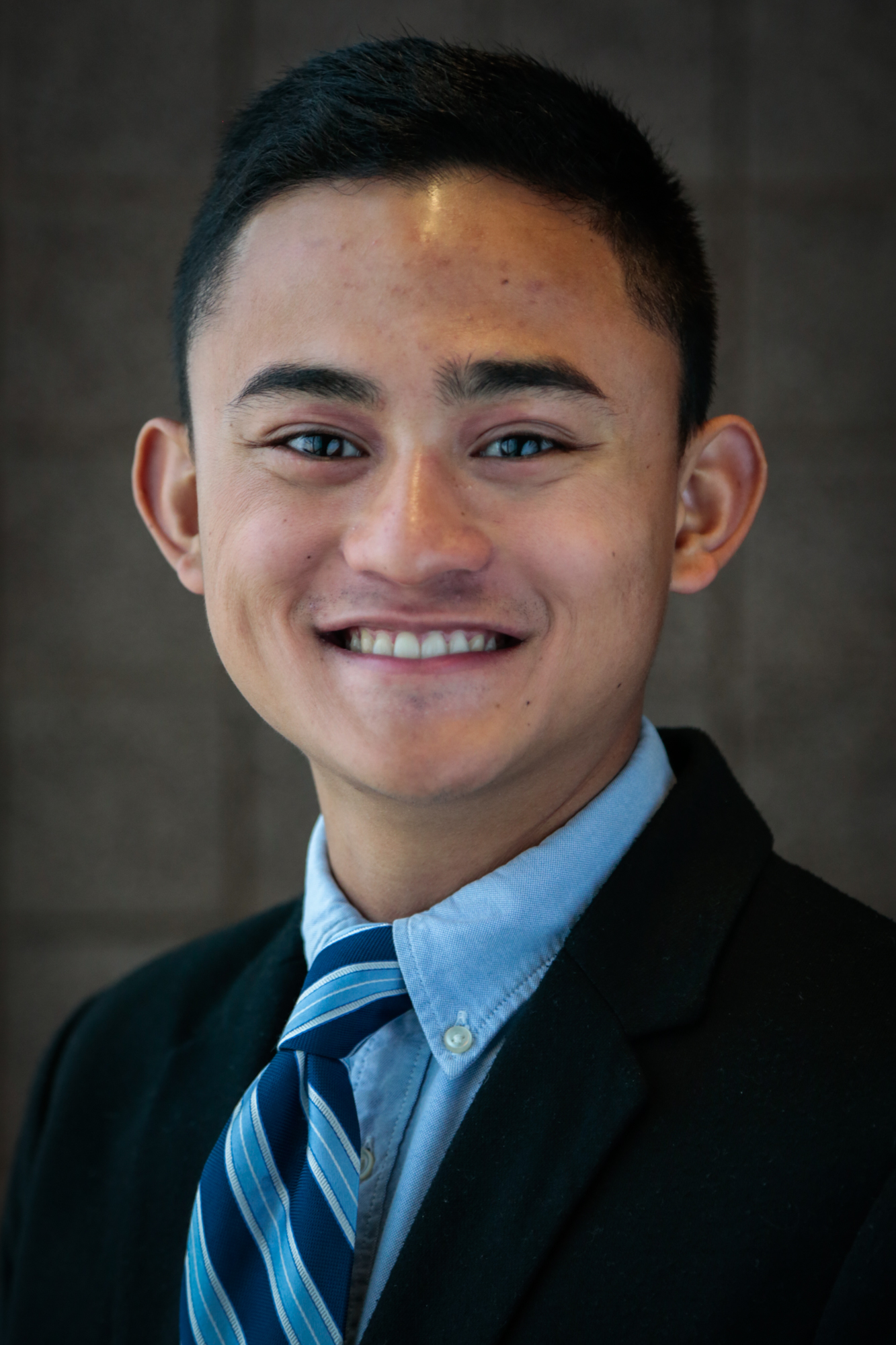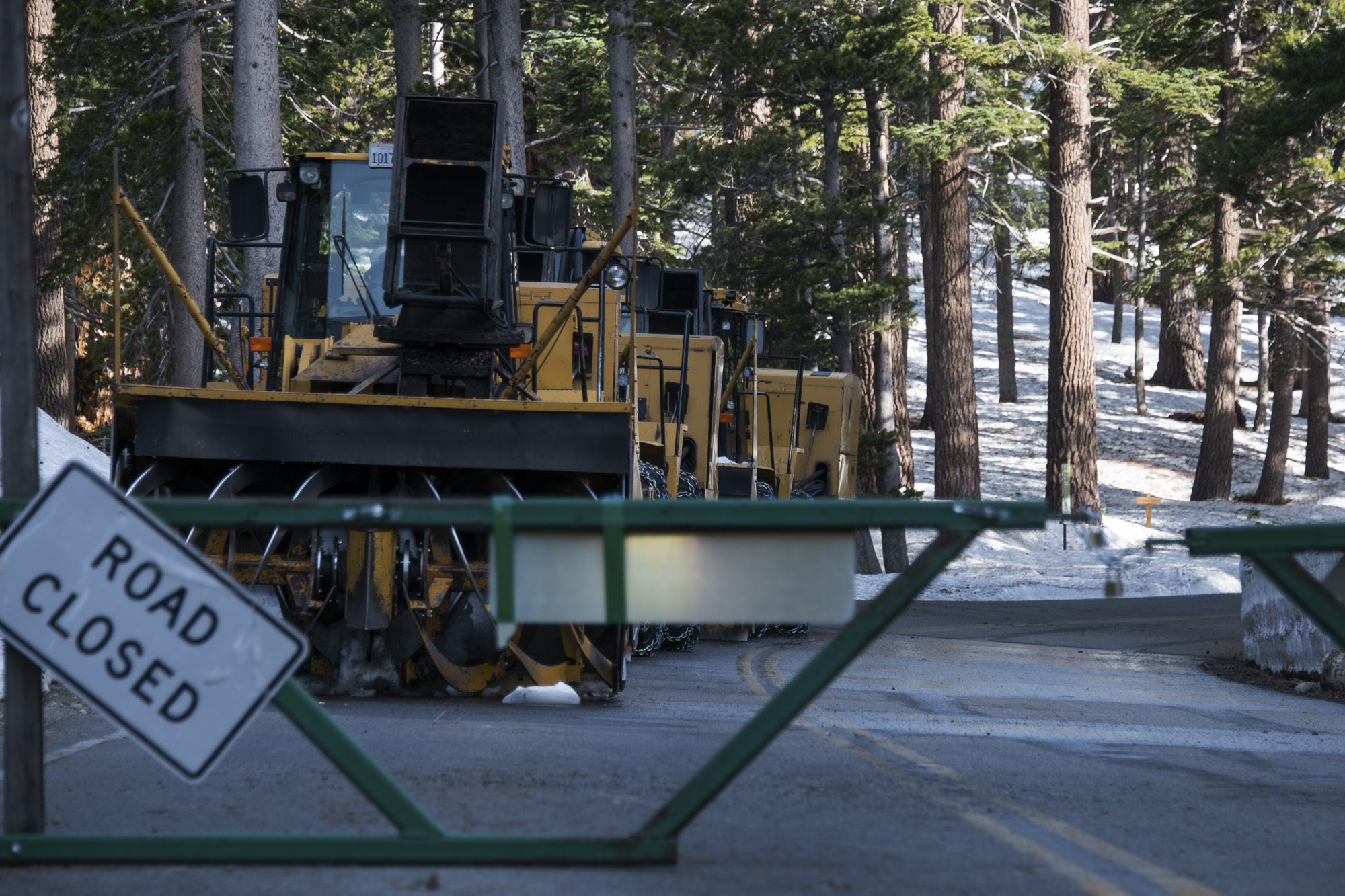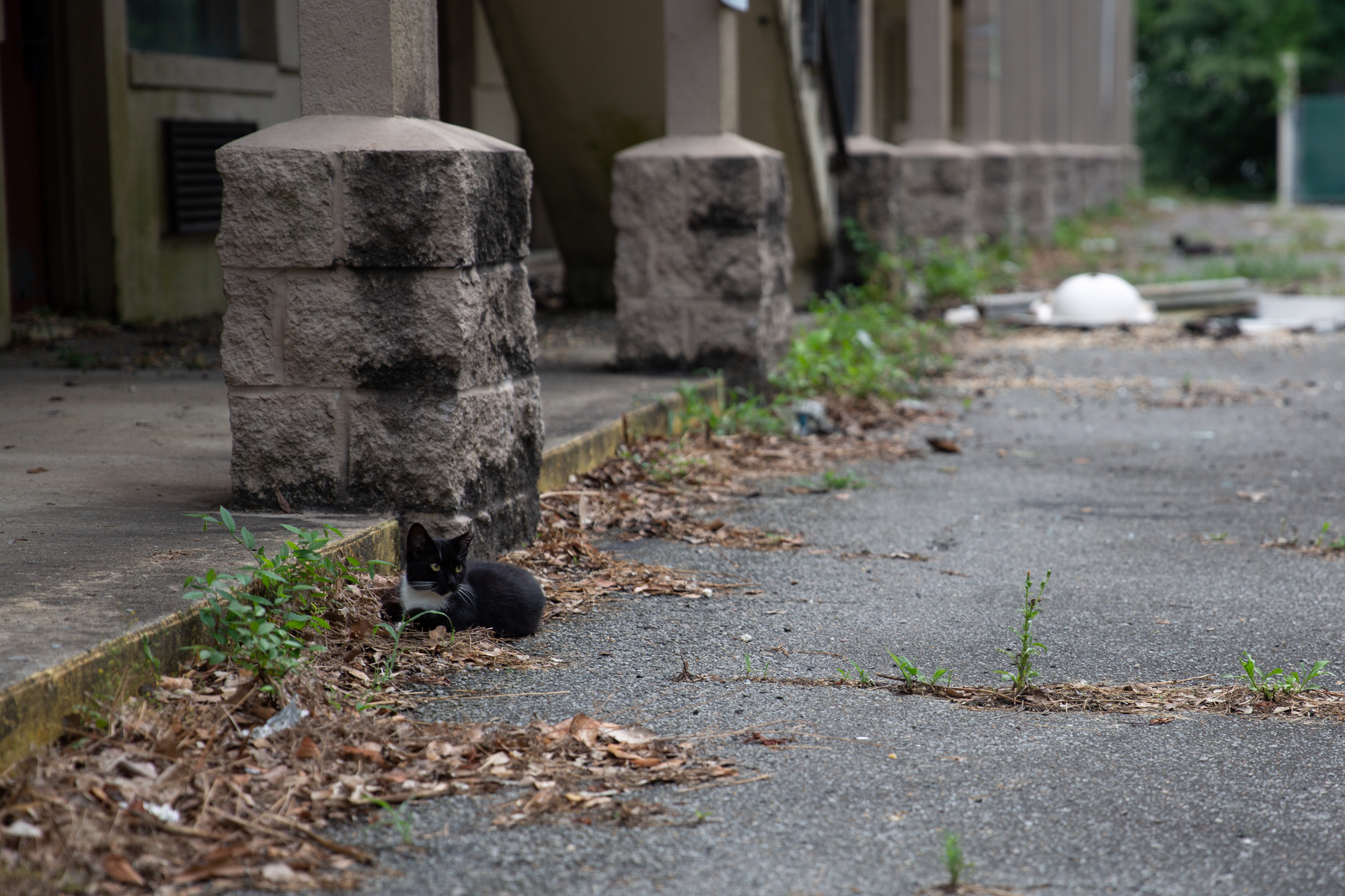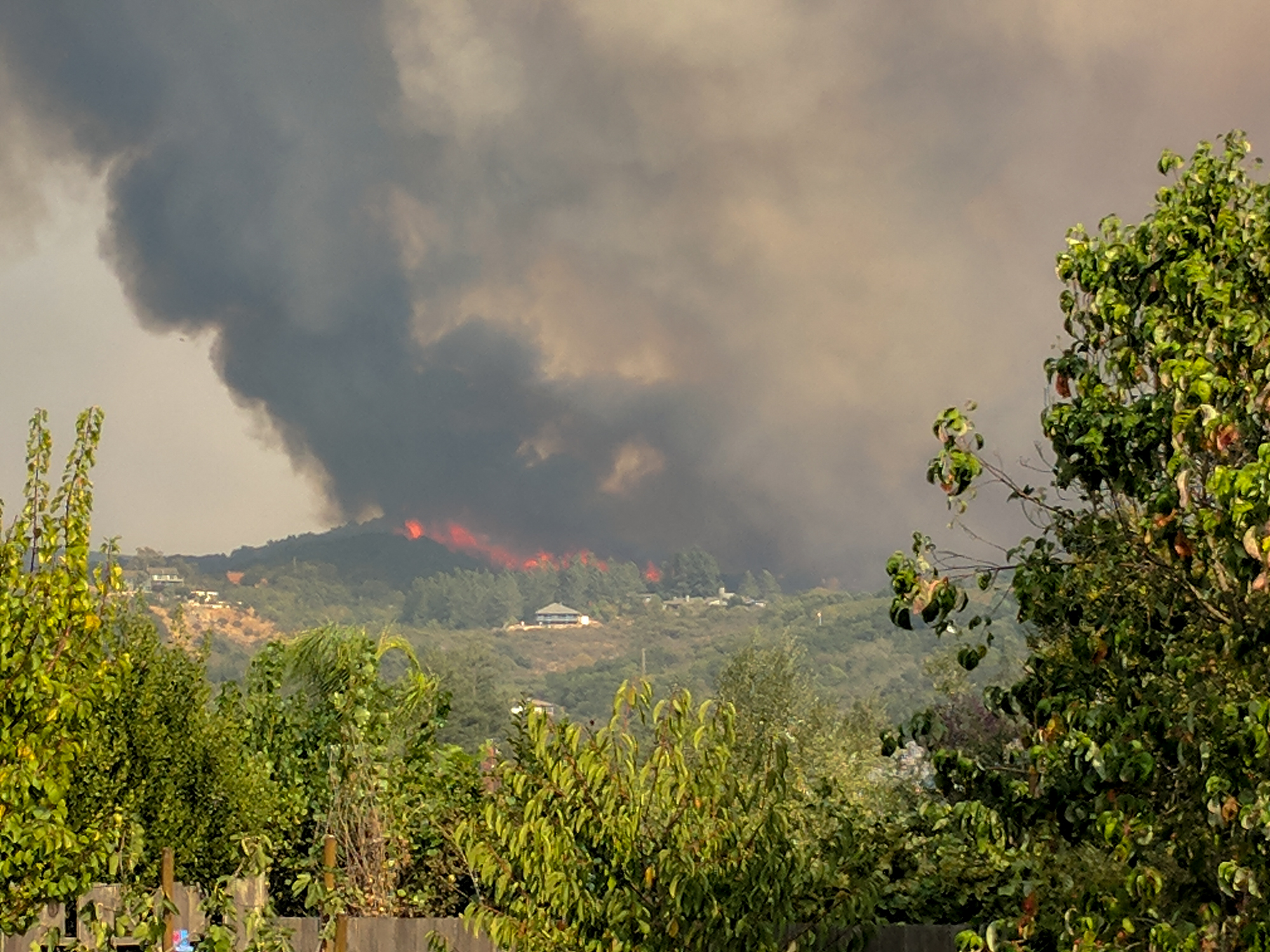PINETOP-LAKESIDE, Ariz. — Learning to live fire-wise is a cause for celebration in wildfire-vulnerable areas. Especially in Pinetop-Lakeside, Arizona, which is in the process of becoming one of the country’s next fire adapted communities.
Bounce houses, barbecues and face painting are recurring trademarks at the annual White Mountains Community Firewise Block Party. But this year included a new attraction, presentations from the Community Planning Assistance for Wildfire (CPAW) program.
The program is funded by the U.S. Forest Service and other private foundations to work with wildfire-vulnerable community and provide fire safety training, land use planning, hazard assessments and wildfire risk trend research to make the community fire adapted. The National Wildfire Coordinating Group defines that as “a human community consisting of informed and prepared citizens collaboratively planning and taking action to safely coexist with wildland fire.”
Since its establishment in 2015, CPAW has partnered with 30 communities in 13 states across the country to make them fire adapted.
The program received 27 grant applications from seven different states this year and accepted four. The 2019 communities are Pinetop-Lakeside, Gunnison County, Colorado, Redding, California and Mariposa County, California.
Kelly Johnston, forestry and fire behavior expert and the lead of the CPAW Pinetop-Lakeside project said the program’s decision to work with the community was a “no-brainer” because of the area’s susceptibility to wildfires and the willingness of officials to work together.
In the last two decades, Pinetop-Lakeside has been forced to evacuate twice by two historic Arizona wildfires — the 2002 Rodeo-Chediski Fire and the 2011 Wallow Fire, which collectively burned more than 998,000 acres.
“I’m very excited to have CPAW working with us because they not only save lives and structures, but they make the jobs of our firefighters much safer. It’s a win-win for everyone,” said Jim Morgan, fire chief of the Pinetop Fire Department, who led to the application for the grant. “If we can survive wildfires, we can have a home to go home to and forests to enjoy.”
To make learning about wildfire safety both fun and consistent, the Pinetop Fire Department co-hosted the annual Firewise Block Party for the fifth time, Morgan sees this as a resource to the people.
“If we can get an early start to fire safety education, we can get a multigenerational change to our culture,” Morgan said. “If we start teaching kids to be fire safe it becomes embedded into them. It becomes a part of them for their whole lives.”
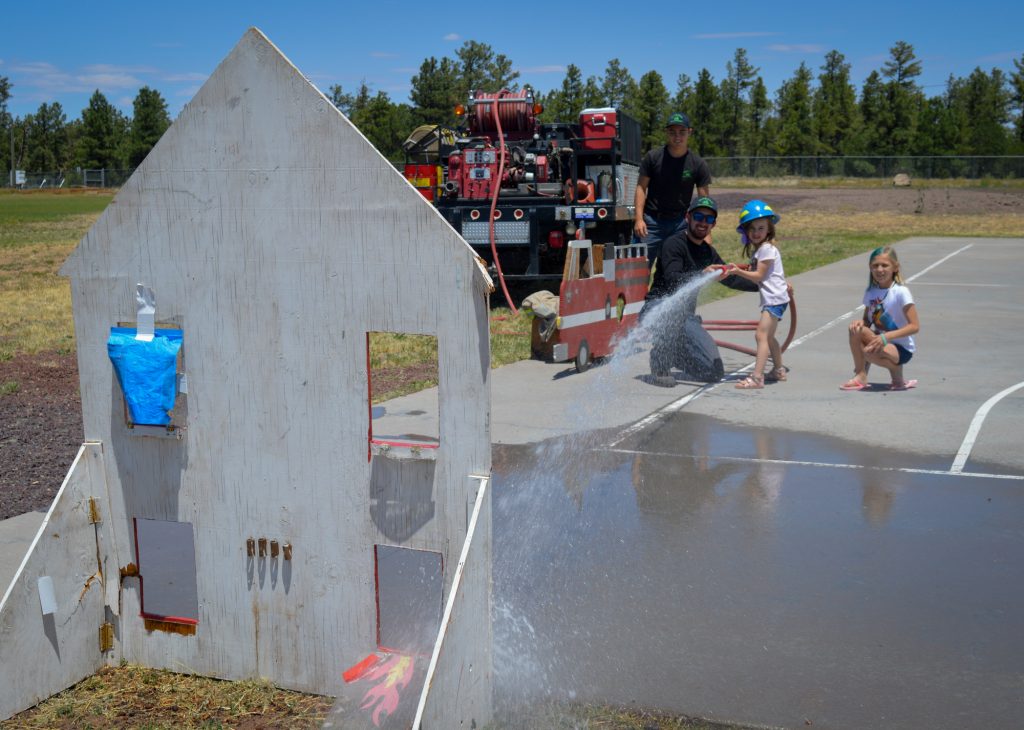
On the Friday before the party, the CPAW team hosted a wildfire training day.
“We are really focused on empowering people to move forward so they can carry on in the long term to reduce wildfire risk through land planning,” Johnston said. “These meetings and sessions are so important because we are essentially passing them the torch.”
The day after the training, Johnston joined other presentations during the party on topics such as homeowner fire safety, defensible space, fire wise landscaping and evacuation preparedness.
Residents of Pinetop-Lakeside join more than 832,000 Arizonians who live in intermixed communities, meaning housing and wildland vegetation intermingle, according to the Department of Agriculture’s 2010 Wildland Urban Interface report. Data shows close to 40 million people across the country live in similarly forested communities.
Communities nestled in the forest are more vulnerable to wildfires. Across all the states, Maine, New Hampshire and Vermont have the largest percentage of their population living in forested communities, according to the report.
The approximately 4,300-person town of Pinetop-Lakeside is located in the largest Ponderosa pine forest in the world. According to the National Park Service, despite the tree itself being fire resistant, forests filled with Ponderosa pine are susceptible to wildfires because of the flammable foliage that surrounds the trees.
“We have not done the thinning that needs to occur to make that land manageable,” Morgan said. “That’s one of the things we are trying to educate our community on.”
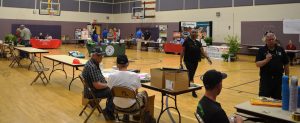
The process to make Pinetop-Lakeside fire adapted began in April when CPAW made their first visit to the community. Johnston and other members of his team met with forestry experts, homeowners and the fire department.
“The real test to know whether or not the community is adapted is how well it fares if a wildfire goes through the community … The answer to that we won’t know until we respond to a significant wildfire and evaluate how we did,” Morgan said. “Being fire adapted can take many years and a community can never reach a fully adapted status because there is a dynamic relationship with the environment.”
The wildfire threat has been ever-present this year. According to data from the National Interagency Fire Center, more Arizonan land has been burned by wildfires in the first six months of 2019 than in all of 2018.
Johnston and other members of the CPAW team will present their research and recommendations during their final trip to Pinetop-Lakeside that is being planned sometime between October and December.
CPAW has been operating on yearly budget and within the next few months, will know if the USFS will continue its approximately $1 million funding of the program. If granted, applications from wildfire-vulnerable communities will be opened in August.
Anton L. Delgado is a senior at Elon University where he studies journalism and international and global studies. At Elon, he serves as the managing editor of the school newspaper and as a multimedia journalist for Elon News Network. Delgado spent spring 2019 in Morocco as a news correspondent for Morocco World News. He has previously worked for Save the Children Jordan and Town&Country Philippines. Delgado dreams of working as an investigative journalist in conflict zones. View Delgado’s work here.
